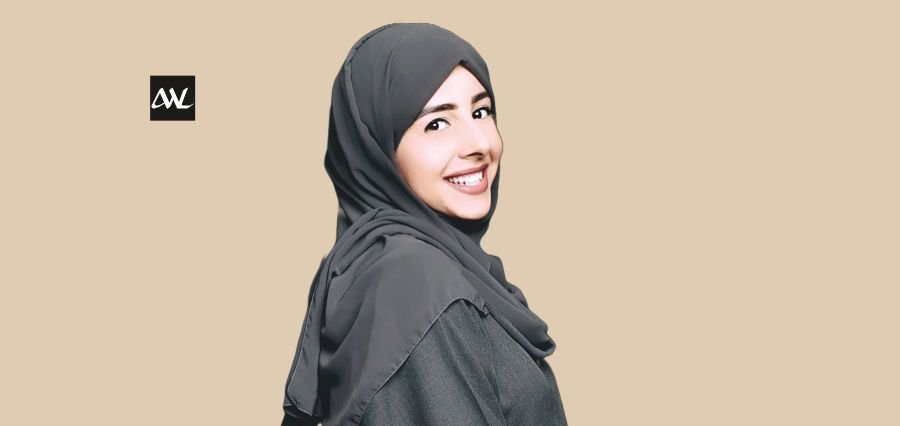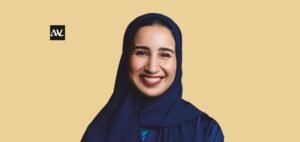In 2025, visionary leaders are not just disrupting boundaries but transforming, in a sense, how the world can innovate by being creative and purposeful. These pioneers include powerful and educated Arab women who are leading the change revolution in all spheres of life. This combination of tradition and technological advancement has made them harbingers of change and is now encouraging a new generation of leadership to embark on their careers with acuity and innovation.
One such remarkable figure is Maisoon Al Saleh, whose unique blend of art, strategy, and digital expertise is setting new standards for creative entrepreneurship in the region. Maisoon is a multidisciplinary Emirati artist, creative strategist, and Founder of The Paintly Store, the first-ever personalized art and innovative design solution. Over 10 years of experience, she is reinventing creative experience, spearheading projects that merge storytelling with physical spaces to create an immersive experience in more than 100 shows through 21 countries.
She is not just a talented painter, but a highly skilled professional in the digital innovation space as well, prioritizing engaging platforms that increase the user experience and communication with the audience. As one of the business visionaries, she has created a brand that promotes art-driven innovation and experience design.
Maisoon remains committed to working on commissions and projects that challenge new frontiers of creative contribution and expand the existing parameters to constantly revise industry standards, with a view to ensuring her status as a key figure in the Arab creative entrepreneurship space.
The Arab Women Leaders recently received a great honor of an exclusive one-on-one interview with Maisoon Al Saleh. During this interview, she offers insights on how her artistic abilities have evolved, her entrepreneurial experiences, her philosophy behind her art, the challenges facing the industry, seminal accomplishments, and how the fields of art and design can spur innovation in the region:
Please introduce yourself to our readers. Tell us about your background, your professional journey, and the driving force behind your career.
I am Maisoon Al Saleh, an Emirati artist, entrepreneur, and storyteller working across paint, form, and space. My creative journey began in the heart of the UAE, shaped by a deep connection to Emirati heritage, visual culture, and identity. From a young age, I was drawn more to imagery than to words, finding resonance in texture, color, and the silent narratives that often go unspoken. That instinct has since evolved into a multidisciplinary practice focused on exploring untold stories through art, weaving together themes of history, memory, and modernity with a distinct surrealist lens.
Although my formal career began after graduating from Zayed University, I have been exhibiting since childhood and never waited for permission to share my voice. Over the years, my work has been featured in over 100 exhibitions across 21 countries, from Italy and South Korea to the United States. I also founded The Paintly Store, a hybrid studio-gallery platform that fosters creative connection between artists and communities.
At the core of my work is the belief that art serves as an archive of emotion, identity, and transformation. Through my practice, I aim not only to express but to document, preserving fragments of Emirati life while envisioning its evolving future. My work stands as both cultural preservation and a speculative lens into what lies ahead.
What inspired you to pursue leadership in your field, and how has your identity as an Arab woman influenced your journey?
Leadership in the arts is not something handed to you, but something earned through risk-taking, resilience, and authenticity. I never set out to lead; I simply refused to wait for the ‘right time.’ As an Arab woman, that decision in itself is often an act of quiet revolution. My identity as an Emirati woman has served as both compass and lens, grounding me in heritage while encouraging me to envision what lies ahead. It reminds me of where I come from and continuously drives me to explore where we are going.
Can you describe a pivotal moment or major turning point in your career that helped shape your leadership style?
One of the most pivotal moments in my journey came when I first exhibited my series The Bright Side of the Bones. I was still a university student, and it was my first major body of work that fused skeletal anatomy with deeply rooted Emirati narratives. When the exhibition opened, I stood quietly in the background as viewers and media passed through, fully absorbed in the pieces. I overheard someone say, “Who created this? This is intense.” The last thing they expected was that the artist behind such emotionally charged, conceptually bold work was a young Emirati woman who had yet to graduate.
That moment shifted something in me. I realized that powerful ideas don’t need to be defended; they speak for themselves. The work became a talking point among major art collectors and attracted the attention of international media. It was then I understood that leadership in the arts doesn’t come from age or title, but from originality and the courage to explore unconventional themes.
That early recognition helped shape my leadership style, one rooted in authenticity, creative risk, and the belief that the work should speak before I even enter the room.
How do you define leadership, and what qualities do you believe are most essential in today’s leaders, particularly in the Arab world?
For me, leadership is the ability to listen to what is invisible, to recognize potential even before it is fully articulated. In the Arab world, especially within the creative sectors, leadership requires bridging vision with value. It’s not only about initiating ideas but also about protecting and nurturing them until they have the space to flourish.
What role do mentorship and community play in your personal and professional growth?
I’ve had mentors in the traditional sense, including professors, cultural leaders, and professionals who shaped my early thinking.
Community, however, is what keeps you grounded. The UAE’s creative scene is intimate, dynamic, and deeply interconnected. It reminds me that art is never a solitary act. Every brushstroke contributes to a larger dialogue.
That’s why I often mentor emerging artists through workshops and portfolio reviews. It’s not only about giving back; it’s about strengthening the web of creativity that connects us all.
How do you balance tradition and innovation in your leadership approach, especially within the context of Arab cultural values?
For me, tradition is not static; it is a rhythm and a structure within which you can improvise. I often begin with traditional Emirati elements but reimagine them through acrylic, sculpture, digital overlays, or sine wave patterns that symbolize sound and memory.
In leadership, this approach means respecting the past without replicating it, whether curating an exhibition or negotiating a public artwork.
What impact do you aim to create through your work, both within your organization and in the wider society?
Within The Paintly Store, I strive to create an ecosystem where artists, collectors, and cultural institutions collaborate rather than compete. It is not just about selling art; it is about building narratives that endure beyond trends. More broadly, I hope my presence inspires women, especially young Arab girls, to believe that their vision holds value, not only aesthetic but also social and economic significance.
How do you see the future of women leadership evolving in the Arab region, and what steps are needed to accelerate that progress?
The future is already being shaped by Arab women who are redefining sectors such as art, design, technology, law, politics, and many more.
What advice would you offer to young Arab women who aspire to lead and make a difference in their respective fields?
You don’t need to wait for the perfect moment, funding, or title. Start now with what you have, where you are. Leadership is not something you grow into when you are “ready.” It is something you discover by showing up again and again, even when the room was not designed for you. It is also important to manage your energy, not just your time. Creativity and leadership both require resilience, which is built not only from ambition but also from rest, joy, and community.
In a fast-changing world, how do you stay grounded and maintain clarity of vision?
I stay grounded by staying curious. I read books, take long walks, and sketch things that serve no purpose other than to feel. These small rituals keep me connected to what truly matters.
My clarity comes from trusting that art has its own rhythm, and that you do not need to chase every trend to remain relevant. Sometimes, pausing is the most radical act.
What legacy would you like to leave behind as a leader?
I hope my legacy will be one of quiet defiance and generous creation, one that made space for other Arab women to dream boldly and lead with both strength and softness.
I want to be remembered not only for the works I created but also for the doors I opened for artists, culture, and meaningful conversation. If a young girl sees my path and feels less alone in her ambition, then I will have accomplished something truly worthwhile.
Read Also : Shinuna Al Barwani: Redefining Leadership and Empowering a New Arab Generation


